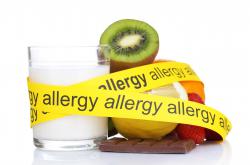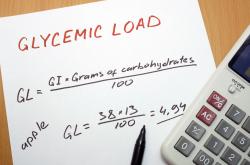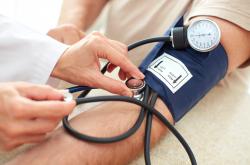Medications That Cause Tiredness
Fatigue can be a side effect of some prescription medications. Find out which medications are most likely to cause tiredness and what can you do to diminish this problem.
Many illnesses and chronic conditions require taking prescription medications. These can have a variety of side effects, including fatigue.
Tiredness can be caused directly (e.g. the medicine makes you sleepy), or indirectly (e.g. the drug changes the biochemistry of your body leading to tiredness). Possible fatigue inducing side-effects are: loss of vital minerals and vitamins, food allergies, intolerances, adverse affect on appetite and the creation of leaky gut syndrome.
Some medications leach vital minerals and vitamins from the body, robbing you of the ability to function well. If your appetite becomes poor, it may be a struggle to eat, and you risk not eating enough of the right foods for good nutrition. So, if your appetite is suppressed because of the medications you are taking, it would be wise to eat as healthily as you can, avoiding fast food and processed food, and aiming to eat as much fresh food as possible [please seeNutrients that you needandFood and drink to avoid if you are feeling tiredfor more details].
In Leaky gut syndrome, the lining of the intestines becomes more permeable. Causes of this include: toxin build-up, poor diet leading to lowered essential nutrients, parasites, and medications. Because the intestinal lining leaks, it allows bacterial fragments, as well as toxins and microbes to pass into the blood circulation, causing infections and immune reactions. In addition, the process which should carry vital minerals and vitamins across the intestinal wall is often compromised or doesn’t work very well. Fatigue and further weakening of the body are common results.
The liver in particular is put under stress by toxicity as it is the job of the liver to eliminate toxins from the body. If you are taking prescription medications, it would be sensible to protect the liver by avoiding other substances, which might stress it further e.g. alcohol, caffeine, nicotine and illegal drugs. Additionally, some drugs (e.g. Seldane) adversely affect the liver’s de-toxification ability (by blocking an enzyme system known as the mixed function oxidase system). If you are diagnosed with Leaky gut syndrome, it is worth considering some specific supplements, such as:
- L-Gluthamine
- Gamma-linolenic acid
- Butyric acid
- Anti-oxidant nutrients, such as vitamins A, C and E as well as carotene, zinc, magnesium and selenium.
- HCI which, if taken with meals, helps with digestion and lessens the antigenic load.
Finally, many prescription medications contain additives and colorings (similar to the ones that are added to fast foods and ‘convenience’ foods. The results are toxic, making the body more acidic and forcing the adrenal glands to work overtime, which will tire you even more.
Which prescription medications cause problems?
Of the top 150 prescription drugs, around 109 have the potential to cause fatigue, either directly or indirectly. It’s worth bearing in mind that a medication,n which might not affect you on one occasion may have an adverse effect at another time, especially if combined with a second medication or an environmental toxin. These are the drugs (medications and other substances) which can cause tiredness:
- Antihypertensives
- Beta-blockers
- Antidepressants
- Tranquilizers
- Sleeping pills
- Antihistamines
- Antibiotics (especially if used repeatedly or over a long period of time)
- Diuretics
- Illicit or illegal drugs
- Alcohol
The following is a list of some of the drugs and their specific issues:
- Diuretics – this class of prescription drugs can cause loss of magnesium and potassium
- Dilantin and Phenobarbital – can cause deficiency of folic acid (vitamin B9)
- Aspirin and acetaminophen – if used on a long term basis, these medications can diminish the amount of folic acid and iron in the body as well as create of leaky gut syndrome.
- High blood pressure medications (antihypertensive) in particular Hydrazaline, which upsets the absorption of vitamin B6.
- Cimetidine (Tagamet), which is used in the treatment of ulcers, can lead to a deficiency of Vitamin B12.
- Tricyclic Antidepressants, which have fatigue as one of the known major side-effects.
- Sleeping pills, such as Halcion and Resoril, and tranquilizers such as Librium, Valium and Mellaril are all known to cause a ‘hangover’-like effect of tiredness.
It should be remembered that there are many more medicines, which can cause tiredness, and so it is worth asking your doctor about possible side-effects at the time of prescription. Many patient leaflets contain information about the known side-effects of the medication. Pharmacists are also a good source of information about side effects and may be able to make some helpful suggestions as they are usually very well-informed.
What can you do about medication-related tiredness?
The best way to deal with this kind of fatigue is to seek alternatives to prescription medicines. You may be able to help yourself by nutritional supplementation and lifestyle changes alone. If this is not possible, try to find other medications or combinations of medications, which will be less harmful. You also may want to consider the following:
- Take plenty of water to keep your system well hydrated.
- Avoid caffeine, nicotine and alcohol which may put additional stress on your liver.
- Get high quality sleep [please seeReduce tiredness by improving the quality of your sleepfor more information].
- Practice relaxation at least once a day.
- Make sure that you eat high quality, fresh food.
- Take gentle exercise – as much as you can. Aim to break sweat, or get out of breath at least once every day.
- And finally, find sources of joy and encouragement in your life that will lift your spirit and help to heal your body.











Leave a comment